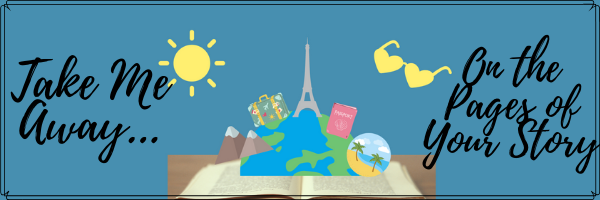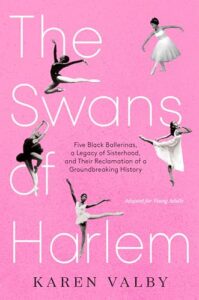e-Audio, 07:15:37
Narrated by: January LaVoy, Lydia Abarca Mitchell, Sheila Rohan, Marcia Lynn Sells, Karlya Shelton-Benjamin, Khadija Tariyan McKinney G.
Release Date: January 14, 2025
Published by: Books on Tape
Read from: December 31, 2024- January 2, 2025
Stand-alone
Source: PRH (I received a copy of this e-ALC from the publisher and an e-ARC from Netgalley in exchange for a just and honest review. This did nothing to influence my review.)
Content Warning: Racism, Body Shaming, Bullying, Eating Disorder, Abortion, Alcoholism, Death, Suicidal Thoughts, Domestic Abuse
For Readers Interested In: History, Art, Dance, BalletA full accounting of five incredibly talented Black ballerinas from The Dance Theater of Harlem, founding members among them, that illuminates their hard-fought, historic, and overlooked contributions to the world of classical dance at a time when racism shut out Black dancers from major dance companies.
It was true until only recently, their past achievements had been erased—that’s what happened to five Black ballerinas, members of the groundbreaking Dance Theater of Harlem. At the peak of the Civil Rights Movement, Lydia Abarca, who dance critics praised effusively, was the first Black prima ballerina of this major dance company, performing lead roles in the most iconic ballets. She was also the first Black ballerina to grace the cover of Dance magazine.
Alongside fellow founding members Sheila Rohan and Gayle McKinney-Griffith, and first-generation dancers Karlya Shelton and Marcia Sells, these swans of Harlem shone a bright light on the depth of Black professional classical dancers. Their grit, determination, and exquisite artistry propelled them to dizzying heights, but over the decades, their trailblazing and triumphs were largely forgotten. Now these ballerinas and longtime friends are giving voice to their stories on and off stage—reclaiming a past so that it is finally recorded and acknowledged.
*MY THOUGHTS*
I have been excited for this book since I saw it was coming out. I know there’s an adult version, but I read this Young Readers Addition because we were considering it for ToB. And honestly, at this point it doesn’t matter. I enjoyed this and I enjoyed learning about these ladies. I don’t think I would have ever heard about them otherwise.
Since there’s been some discourse online, I will say this. Yes this book is written by a white woman. And yes I know we don’t want to learn about our history from them. I myself have a love/hate relationship with books like these. But in some cases, our history isn’t getting told. I went to look up these ladies AFTER I found out about this book. And a lot of it is just stuff that people put up AFTER the article (by the same author) was written. While I hate that we are learning about them by someone other than us, I do appreciate her wanting to tell their story. In the book she specifies that Misty Copeland didn’t even know about them and that’s just WILD to me. (And I think they’re getting paid for this too since they’re listed as narrators on the audiobook) So Idk. I feel a way, but I also want to know these ladies and what they’ve done and I still want these ladies to be known by other people as well.
Finding all these women and listening to their stories and learning about what they went through was rough. Knowing that people would most likely know the name Arthur Mitchell but not the names of these ladies was gut wrenching. Especially with the way he talked to them and treated them. They were subject to body shaming and so much more. And even now people still think of the school itself, but they don’t think of the women who were there first. And that’s upsetting to me. I loved that they have a space to come and talk about only them. When I looked them up individually, I realized that many of the things they did and talked about was always about someone else, whoever was “controlling” them at the time.
The way the story is told was good as well. It’s more memoir than bio and it’s about each of the women. Each of the prefaces is by the woman it’s about. And in the audio they narrate it. To know that some of these women were in The Wiz, and The Cotton Club, and how they traveled between countries and how people treated them in those other countries. I did read the Young Readers edition for work, so i can only imagine how bad things actually were. I will say tho, if we use this for ToB, it’s more memoir style vs narrative and the teens enjoy narrative non-fiction more, so this is something to think about.
This was really good, but I do feel like there could be more to tell from Us. But I also feel like I wouldn’t know who to search for without this book. I get it if others were to opt out from reading this. However, if they do, I really hope they look up the women and what they went through to know and learn them. Will I be adding this to any Black History Month book lists? No. But now I know more about them and will know what to look for to learn more.
Overall, I give this





